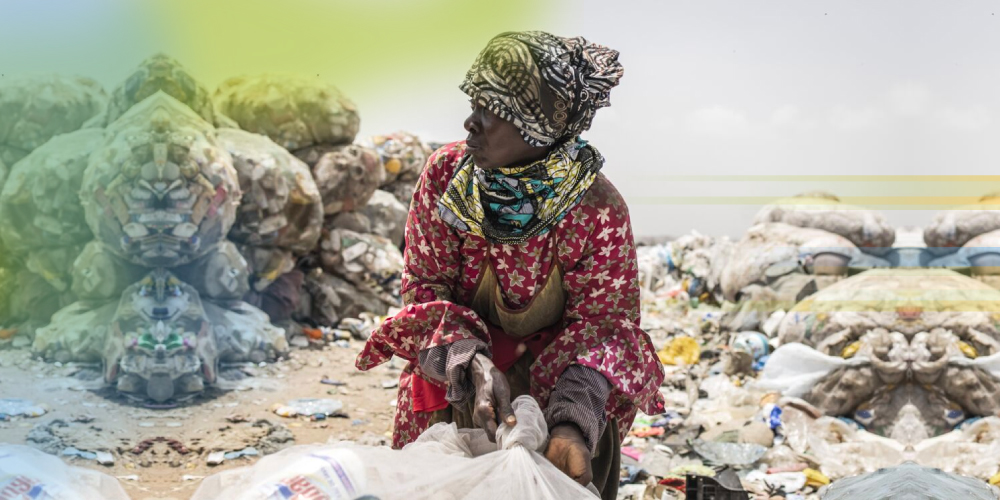Main lines of action

Strengthening sector governance and institutional capacity as the first component of PROMOGED, it supports:
- reforming the regulatory and institutional framework and the solid waste financing mechanism to enhance the sustainability of the solid waste sector in Senegal and Africa and to improve the environment for successful public-private partnerships in the country's solid waste sector
- Conducting technical studies to facilitate the implementation of proposed reforms to the institutional and regulatory framework, financing mechanism, and public private partnership (PPP) framework;
- Citizen participation and public awareness for behavioral change to reduce waste and dispose of it properly and to improve the mechanisms through which citizens provide input using various information and communication tools;
- Capacity building and institutional strengthening of participating cities to administer the new solid waste management system.
Support will be provided in three reform areas through a results-based financing system, whereby funds will be disbursed to specific local or central agencies or ministries involved in the implementation of specific reforms conditional on the achievement of specific indicators that serve as the basis for disbursement. The objective is to increase the efficiency of the investments and to use the public funds of the project to create an enabling environment for private sector investments in the solid waste sector.
The three areas of reform identified are:
- Reform of the institutional and regulatory framework: the objective is to clarify the role and responsibilities of each of the actors involved in municipal waste management. Several actors are currently involved in this sector without adequate coordination, resulting in poor performance. This problem has been identified as an obstacle to PPPs in the waste sector. The planned reforms will clarify the role and responsibilities of each actor and promote the capacity building activities needed to fulfill this role.
- Reform of the financing mechanism: The objective is to create a financially sustainable sector by reforming the current waste collection tax (TEOM) and road tax and introducing a waste collection fee (REOM) and an eco-tax on targeted goods based on their waste generating potential.
- Strengthening public-private partnerships in the solid waste sector through the establishment of a sector-specific partnership framework. The objective is to create a framework that specifies how public-private partnerships (PPPs) in the solid waste sector are to be prepared and monitored, and to prepare the necessary guidance documents and standardized bidding documents.
Improving solid waste management infrastructure and services in selected urban areas.
Under this second component of PROMOGED, waste management facilities and the acquisition of equipment necessary for the creation or improvement (where appropriate) of waste management services in Greater Dakar and four secondary urban areas will be financed. These settlements were selected based on the following three main criteria
- Total population and population growth;
- Current socio-economic situation and expected impact of improved solid waste management on economic activities such as tourism;
- Existence of sites where project co-financiers are already implementing other programs or projects that can be leveraged to create better synergies.
Based on these criteria, the following clusters were agreed upon with the Government: Pôle Dakar, Pôle Thiès (Thiès, Mbour and Tivaouane), Pôle Nord (Saint-Louis and Matam), Pôle Casamance (Ziguinchor, Kolda and Sédhiou).
This component has two sub-components:
- improvement of waste management services for the Dakar pole along the entire value chain (pre-collection, collection, recycling, transfer, treatment and disposal), and progressive improvement of the Mbeubeuss site;
- Implementation of an integrated waste management system in three secondary poles.
PROMOGED will ultimately lead to the establishment of the following infrastructures:
- In the Dakar pole, in addition to the Mbeubeuss rehabilitation, there will be 49 Collection Points (CP), 3 Sorting and Transfer Centers (CTT) and 2 Integrated Waste Recovery Centers (CIVD): 2
- In the NORTH pole, there will be 34 Collection Points (CP), 63 Normalized Collection Points (NCP), 4 Collection and Marketing Centers (CRC), 1 Sorting and Transfer Center (STC), 3 Integrated Waste Recovery Centers (IWRC) as well as the rehabilitation of Gandon, Richard Toll, Rosso, Goureg Serigne and other small landfills.
- In the Thiès pole, 35 Collection Points (CPs), 86 Standardized Collection Points (SCPs), 4 Collection and Marketing Centers (CRCs), 1 Sorting and Transfer Center (STC), 2 Integrated Waste Recovery Centers (IWRCs), as well as the rehabilitation of the landfills of Thiès, Gandigal, Tivaouane and other small landfills are planned.
- In the Casamance pole, 23 Collection Points (CPs), 35 Standardized Collection Points (SCPs), 4 Collection and Commercialization Centers (CRCs), 3 Integrated Waste Recovery Centers (IWRCs), as well as the rehabilitation of the Route Diendé, South Airport, Mamatoro landfill sites are planned.

